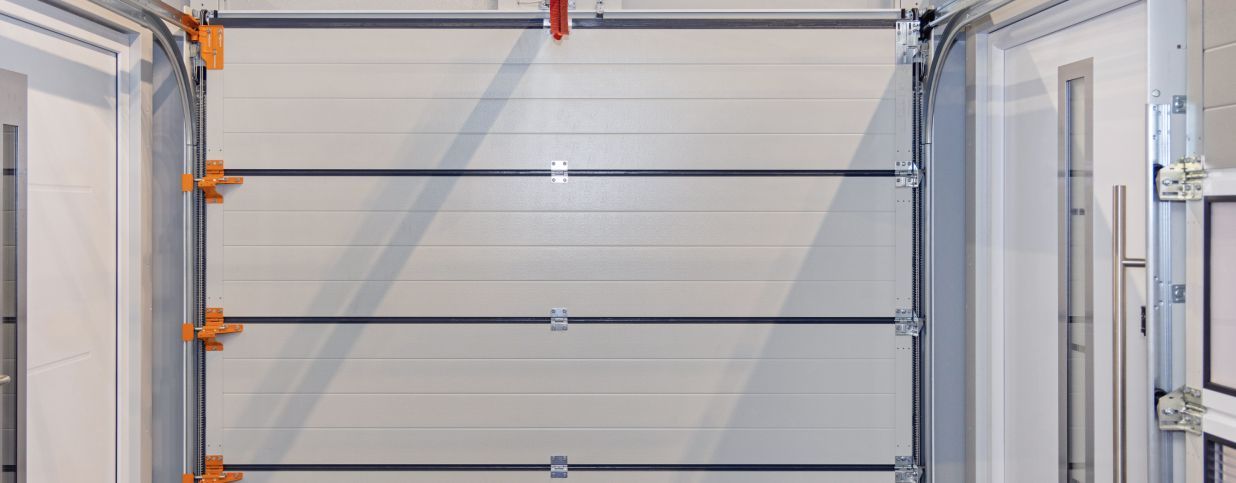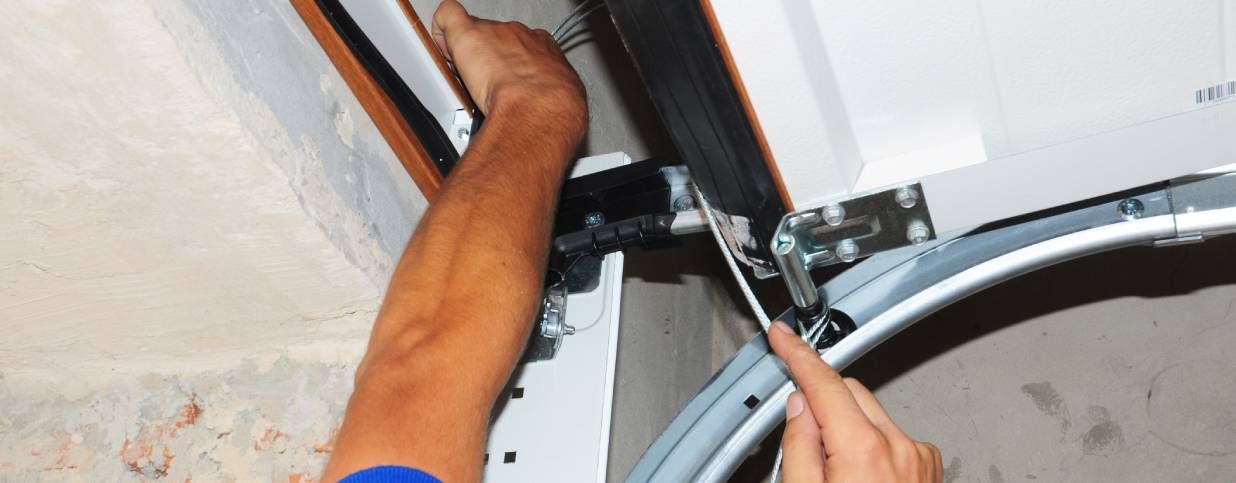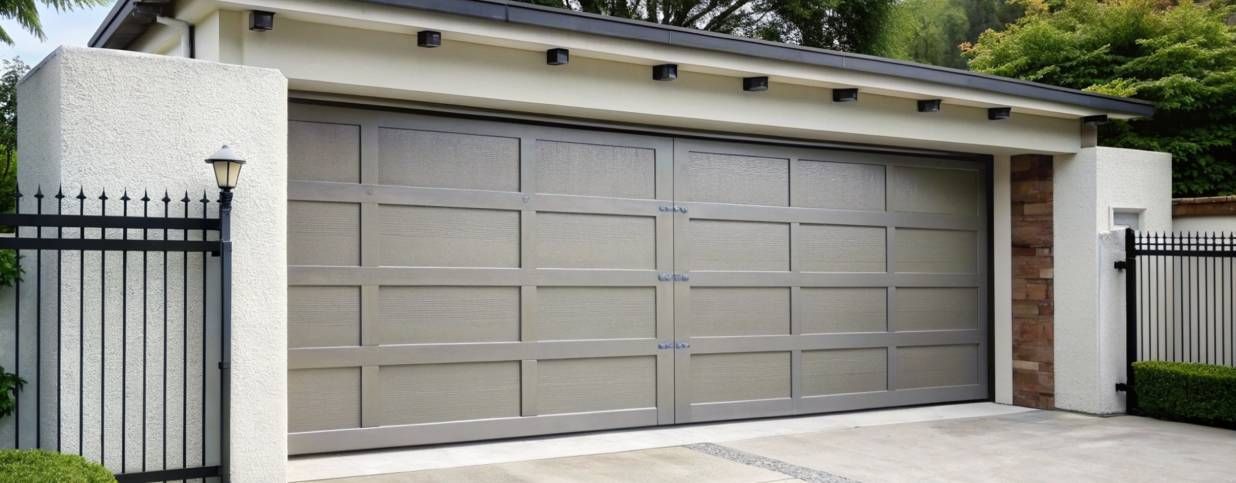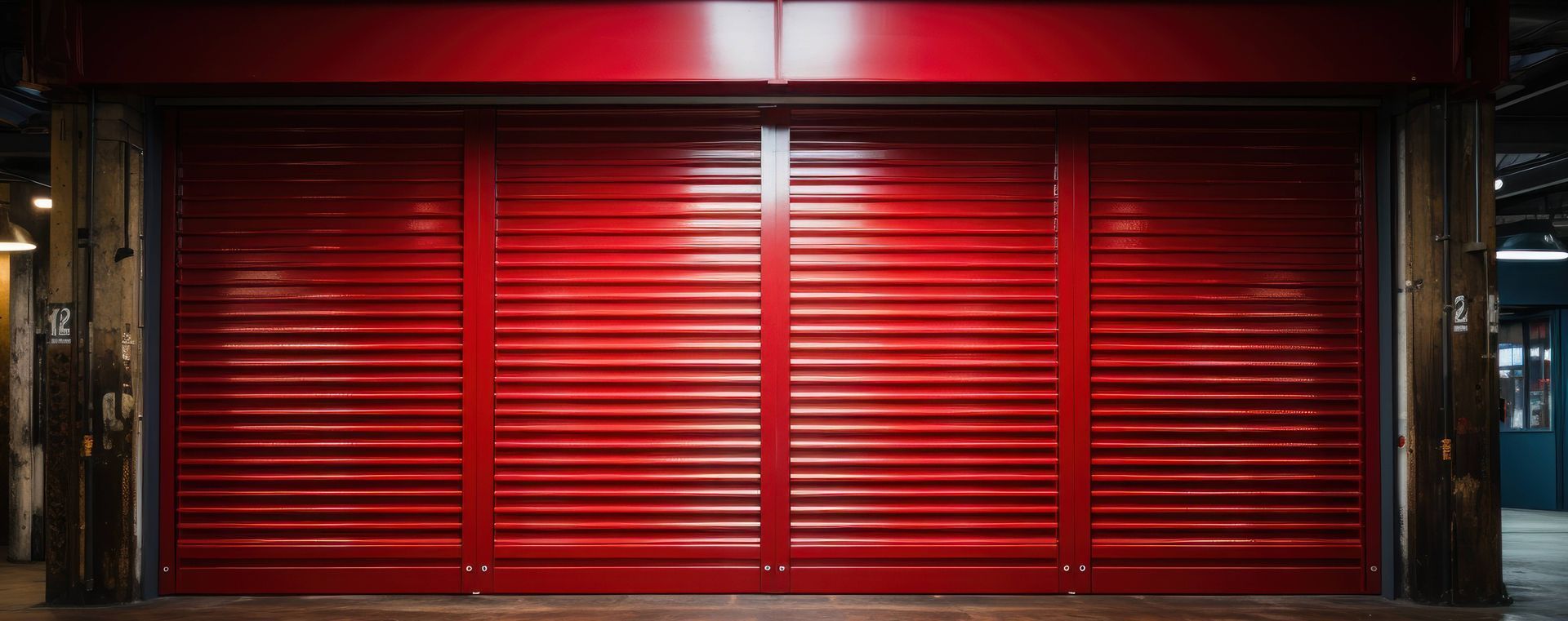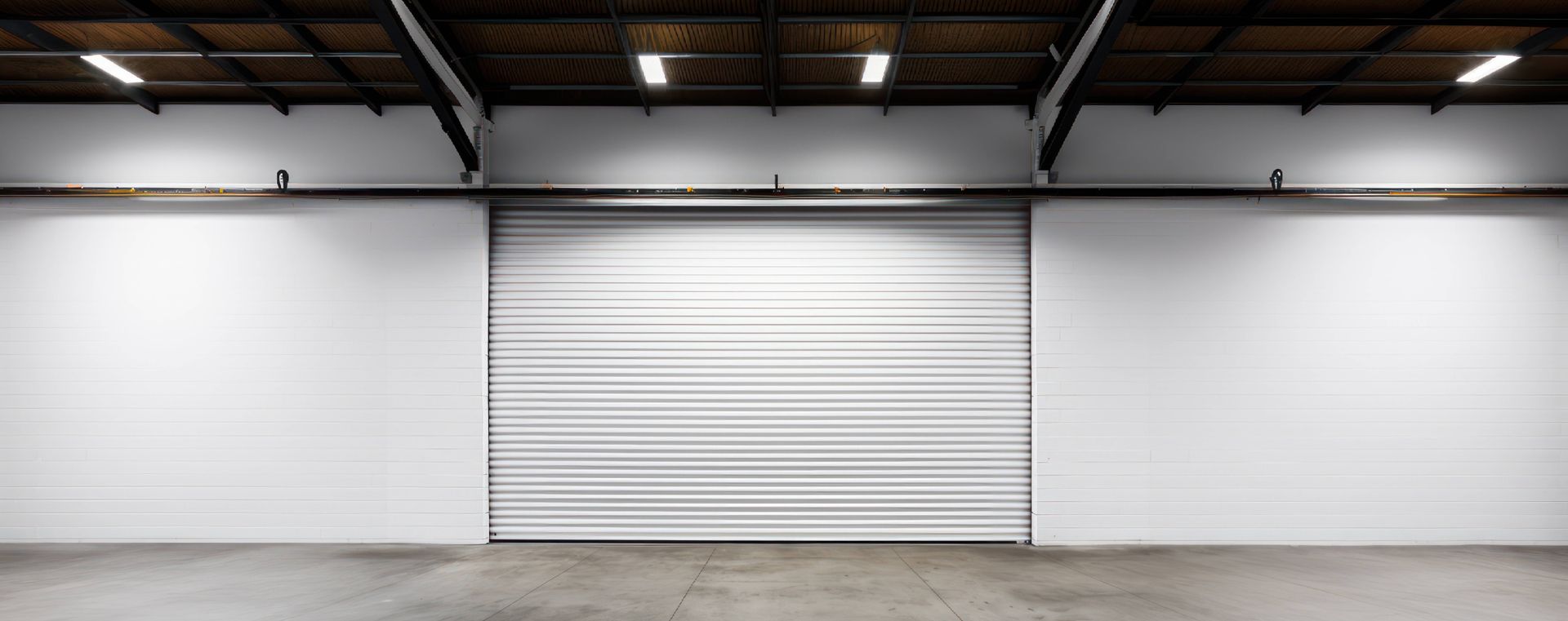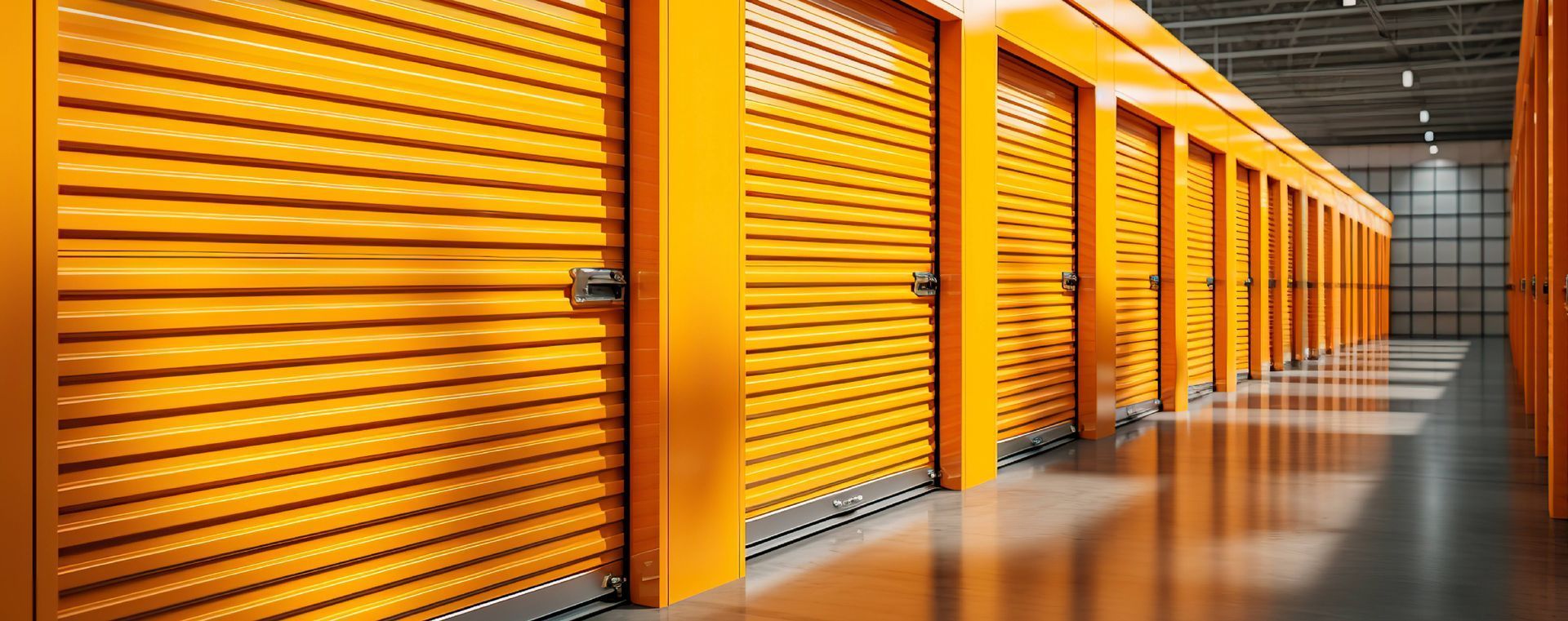The Benefits of Insulated Garage Doors: Why You Should Consider Upgrading
By Jim Hatley, June 13, 2023
Understanding the benefits of insulated garage doors, especially during the winter, is vital for homeowners in regions facing extreme seasonal fluctuations. In climates like ours, fully insulated garage doors are indispensable.
By creating a thermal barrier, insulated garage doors contribute to the energy efficiency of your home. Reducing strain on your HVAC system lowers your heating and cooling costs, providing an immediate return on your investment.
Types of Insulation
- Polystyrene insulation works by reducing heat transfer due to its low thermal conductivity and its structure of closed cells, which effectively restricts airflow.
- Polyurethane, denser and with even lower thermal conductivity than polystyrene, is commonly used as an expanding foam. This foam fills and seals gaps, creating a solid thermal barrier. Additionally, polyurethane enhances the door's durability, making it better able to withstand vibrations and impacts.
Both materials offer excellent insulation, resist moisture effectively, and are adaptable to various uses. The choice between polystyrene and polyurethane insulation should be based on the intended use of your garage and the specific climate conditions in your area.
R-value & STC Ratings
- The R-value on garage doors measures the door's capacity to prevent hot or cold air from entering your home. A higher R-value signifies greater insulation effectiveness.
- The STC rating of a garage door reflects its ability to dampen sound. A higher STC rating means the door is more effective at blocking noise. This is particularly important if you require a quieter environment (for instance, if you play the drums in your garage). Typically, garage doors with higher R-values also have better STC ratings, enhancing both insulation and soundproofing.
Benefits of Insulated Garage Doors
Insulated Garage Doors Protect Your Car
Insulated garage doors aren't just energy-efficient, they also act as a shield against extreme weather conditions that wreak havoc on your car:
- UV damage to your paint and interior
- Hail damage to your windows and body
- Bird droppings and tree sap that can damage your paint
- Extreme temperature changes
Insulated garage door materials assist in keeping your vehicle safe from the wrath of Mother Nature. What’s more, a car that stays in good working order means fewer visits to the body shop and lower maintenance costs.
But it’s not just vehicles that need insulation from temperature fluctuations. Any belongings stored in your garage that may be damaged by freezing, overheating, or condensation will benefit from the protection of an insulated garage door.
You can further protect your car with a reinforced garage door. Not all reinforced garage doors are insulated. However, the sturdier construction of a fully insulated garage door makes them stronger and more secure.
They are Easy To Open
When asking, “Why insulate a garage door?”, chances are ease of use wasn’t on your list. But upgrading to an insulated door for your garage is a game-changer!
Insulated garage doors are crafted using lightweight yet incredibly durable materials like steel or aluminum. These materials, combined with insulation layers, keep the door's overall weight in check while still delivering excellent insulation benefits. That means less muscle power is required to manually operate the door.
Additionally, their improved balance and counterbalance systems distribute the door's weight evenly. This support during operation reduces resistance when lifting or lowering the door – meaning you don’t need to be as forceful.
Say goodbye to straining and hello to effortless opening!
Quieter Opening and Closing of Garage
Have you experienced those early-morning departures or late-night returns that have made you wonder how to make garage doors quieter? Well, fully insulated garage doors don’t just make lifting easier, they are also magical when it comes to reducing noise:
The layers of high-quality insulation material like polyurethane or polystyrene foam have excellent sound-absorbing properties.
Thanks to the multiple layers of insulation, the overall sturdiness of the door is improved. This rigid construction minimizes potentially clamorous vibrations of the panels.
Insulation acts as a buffer, reducing friction and noise between the moving parts during the opening and closing process.
They are Durable
As much as the stealth of insulated garage doors may appeal, you also require quality protection from unwanted late-night shenanigans. That is why so many clients ask our team, “What are the best garage door materials?”
- Steel is a material of choice for many garage doors thanks to its strength and durability. Being resistant to dents, cracks, and warping, steel garage doors stand the test of time.
- Vinyl garage doors also resist dents, rust, and various types of damage.
- Aluminum is another hardy material commonly used for garage doors. It is lightweight yet highly resistant to corrosion.
- Fiberglass garage doors are known for their exceptional durability and high levels of resistance to moisture, rot, and insect damage. Fiberglass has the advantage of being lightweight while still providing good insulation properties.
- Wood composite garage doors are engineered using a mixture of wood fibers and resins, creating a durable and sturdy door that is less susceptible to warping, rotting, or cracking compared to solid wood doors.
Drawbacks of Insulated Garage Doors
Higher Initial Cost
Insulated garage doors are more expensive than non-insulated options due to the materials and construction required for enhanced energy efficiency and durability. This higher upfront cost may not suit every homeowner's budget, especially if the benefits of insulation aren't fully utilized.
Increased Weight
The additional insulation layers make these doors heavier, which can lead to more strain on the garage door’s hardware, such as springs and openers. Over time, this may result in increased maintenance costs or the need for more robust hardware during installation.
Potential Overkill for Detached Garages
For garages that are detached from the home or not used as living or workspace areas, the benefits of insulation may be unnecessary. The added cost and features may not provide sufficient value in such cases.
Reduced Design Flexibility
Due to their thicker, multi-layer construction, insulated garage doors may have fewer design options available. Additionally, their larger size and weight might require more space for proper installation, which could be a limitation in some setups.
Benefits of Non-Insulated Garage Doors
Cost-Effective Option
Non-insulated garage doors are often significantly less expensive than insulated ones. For homeowners who don’t need the energy efficiency and temperature control that insulation offers, non-insulated doors provide a budget-friendly solution.
Lighter Weight
Without the additional insulation layers, non-insulated garage doors are lighter in weight. This can make them easier to lift and operate, especially if you rely on manual opening and closing. A lighter door places less strain on the door’s mechanisms, potentially leading to a longer lifespan for the springs and tracks.
Easier to Maintain
Non-insulated garage doors generally have fewer parts that are susceptible to damage from temperature fluctuations or moisture. Since they don’t contain insulation, there is less risk of mold, mildew, or deterioration from moisture buildup.
Simplicity in Design
For those who prefer a clean, straightforward aesthetic, non-insulated garage doors offer a minimalist design without additional layers of insulation or other features. This simple design can be a better match for certain architectural styles or homeowners who prioritize function over extra features.
Drawbacks of uninsulated garage door
Poor Temperature Control
Non-insulated garage doors offer little protection against extreme temperatures, making your garage uncomfortable and potentially increasing energy costs for attached garages.
Lack of Energy Efficiency
Without insulation, these doors allow heat and cold to pass through easily, leading to higher energy bills and less efficient temperature regulation in your home.
Minimal Noise Reduction
Non-insulated doors do not block outside noise effectively, making them less suitable for garages used as workspaces or living areas.
Lower Durability
Typically made from a single layer of material, non-insulated doors are more prone to dents, warping, and damage over time compared to insulated options.
Contact Us for Installation
If you are looking for advice about choosing a garage door and how to insulate a garage door, you have come to the right place!
At
Tri-Lakes Garage Doors, we factor in Colorado’s climate as well as your maintenance requirements and aesthetic preferences before recommending fully insulated garage doors for you.
Contact us today to learn more about the benefits of insulated garage doors and how they can improve your home's comfort and energy efficiency.


